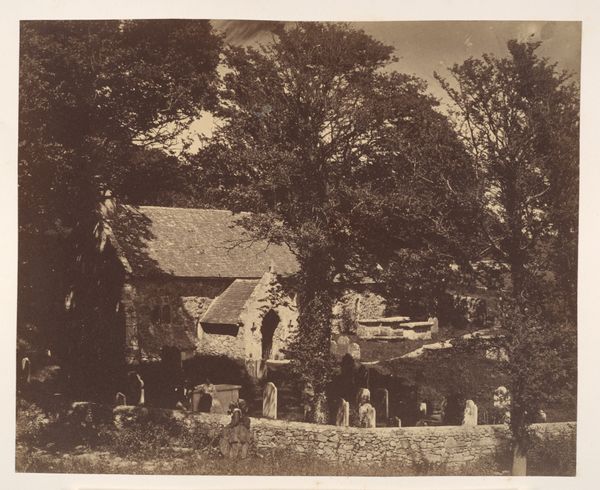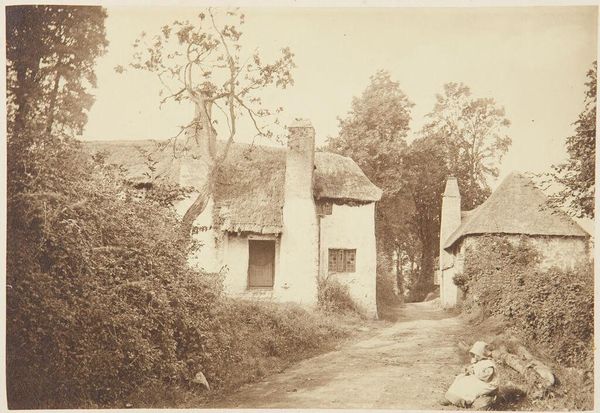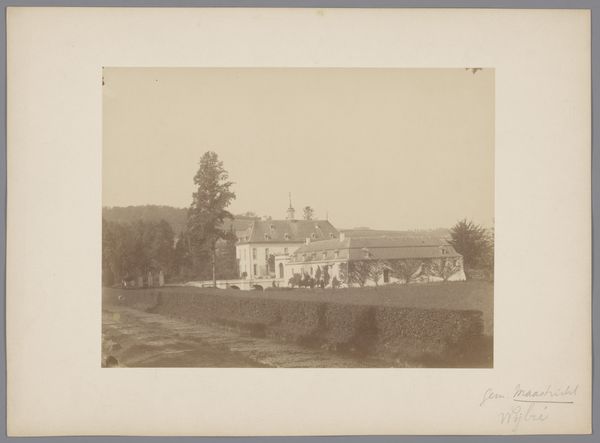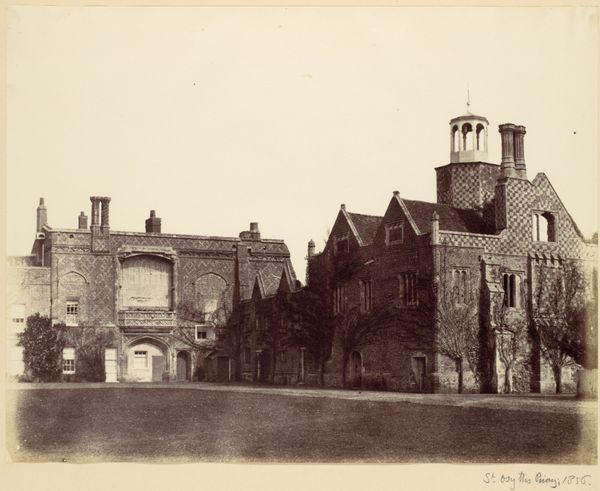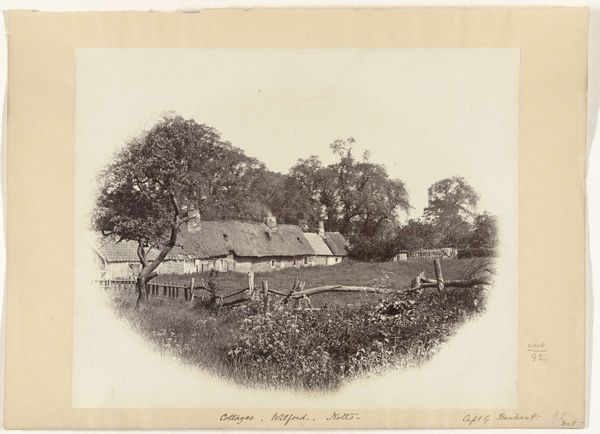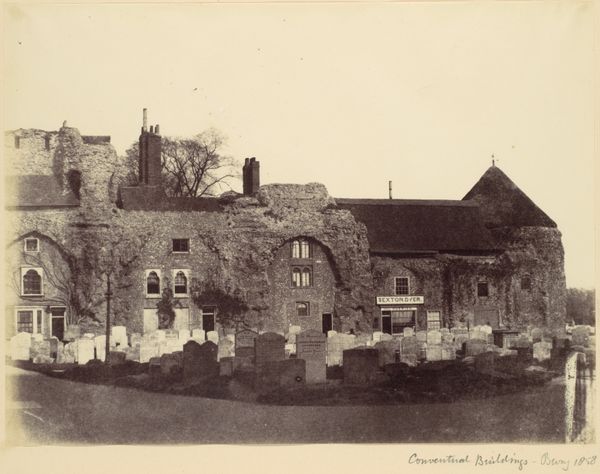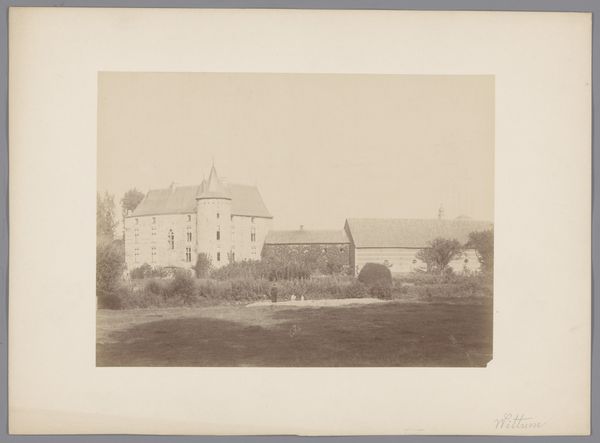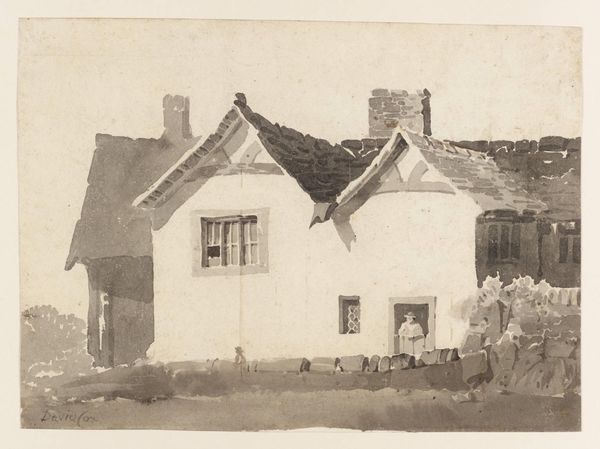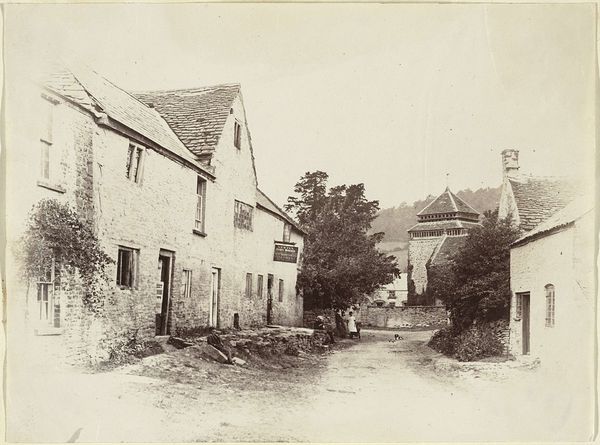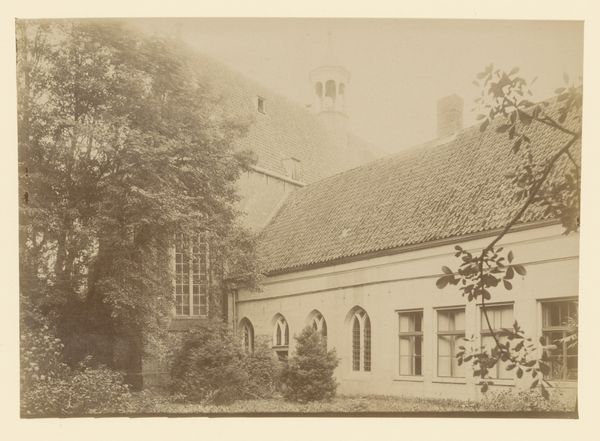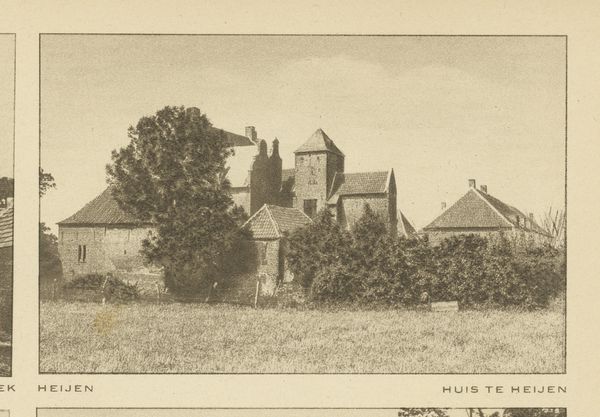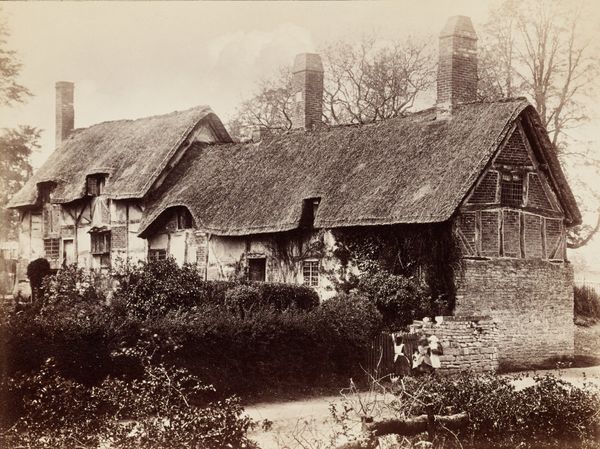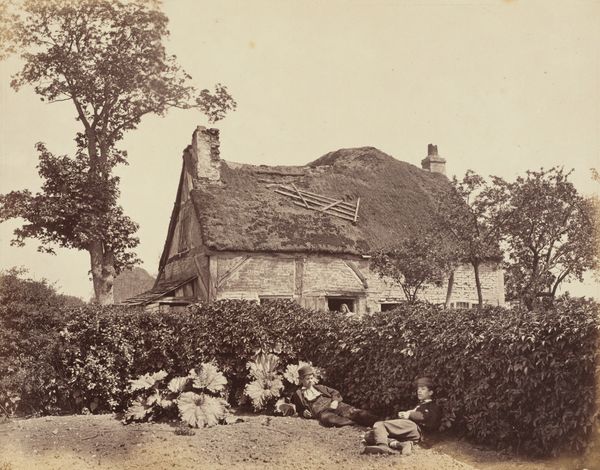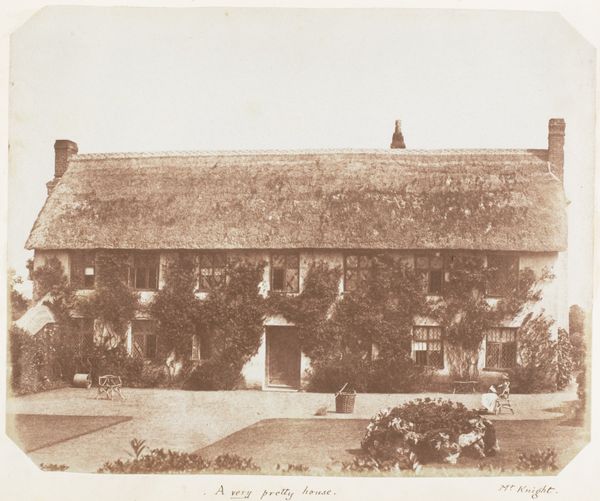
photography, architecture
#
landscape
#
photography
#
architecture
Dimensions: 21.6 x 26.9 cm. (8 1/2 x 10 9/16 in.)
Copyright: Public Domain
Alfred Capel Cure made this albumen silver print of Wenlock, likely in the 1850s or 60s, around the time photography was gaining popularity in Britain. Cure’s choice of subject reveals the cultural and social values of Victorian England. The picturesque ruins, with their romantic associations of medieval history, were a popular subject for artists and tourists alike. The image participates in a broader cultural fascination with the past, aligning with movements like the Gothic Revival in architecture and literature, reflecting a nostalgia for a supposedly simpler, more spiritual time. Looking closer, we might ask, what stories do these ruins tell? Were they symbols of national identity, religious devotion, or aristocratic power? Do they represent a continuity with the past, or a rupture caused by religious and political conflicts like the Reformation? These are questions that historical research can help us answer. By exploring archives, letters, and other documents, we can uncover the social and institutional contexts that shaped this image, and understand its deeper cultural significance.
Comments
No comments
Be the first to comment and join the conversation on the ultimate creative platform.
